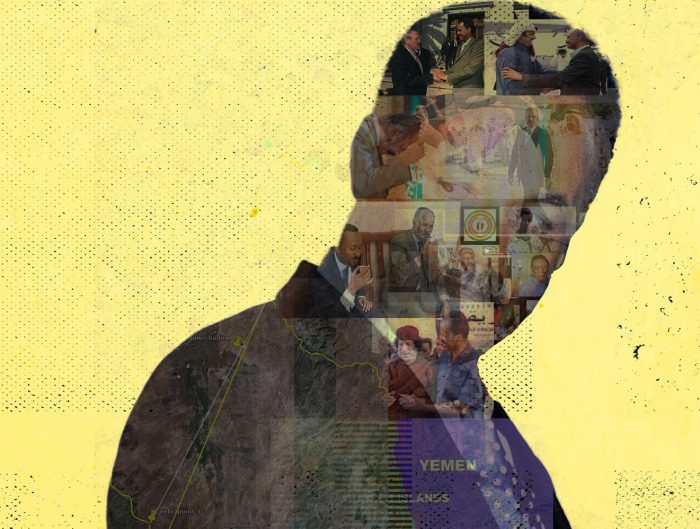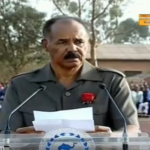For one thing, the Eritrean government has issued several press releases accusing the Ethiopian government of starting the hostilities and being in the preparatory stages of a full war.
This was re-iterated today by Presidential Advisor Yemane Gebreab and yesterday by Foreign Minister Osman Saleh.
The government of Eritrea seems to fully believe that war is coming. As we reported on June 19, Eritrea’s president Isaias Afwerki has directed his cabinet to “mobilize all able-bodied men.”
In that regard, Eritrean website Erimedrek.com reports ( in Tigrinya) that the Government of Eritrea has returned to military units all Eritrean soldiers who had been in detention in Adi Abeyto prison, accused of deserting or being absent without leave. It is also, according to the website, taking precautions presumably “for security reasons” by arresting officers like Major Teklai Fasil (“Liban”), who was assigned to the communications department of the Ministry of Defense, and reinstating roadblocks, along the Asmara-Tesenei road, and conducting extensive searches in the Hagaz and Barentu areas. All of this while capturing and detaining Eritrean youth attempting to flee the country.
But the Government of Eritrea has done one thing that it has never done before: discussing casualties. Firstly, in one of its press releases, it disclosed that Ethiopian casualties were 200 killed and 300 injured. Secondly, and even more unusually, in his address on Martyr’s Day, President Isaias Afwerki disclosed that Eritrea had lost 18 lives in the latest war.
Historically, the government of Eritrea did not disclose casualty figures until war is concluded and a peace treaty is signed, which took decades for the Revolutionary War and two plus years for the border war.
Meanwhile, Ethiopia appears to be tight-lipped on the genesis of the conflict, the precise number of casualties, and what is likely to happen next.
After giving a number of conflicting explanations, Ethiopian spokesperson Getachew Reda told “Meet EBC” that the war was a “long overdue” counteroffensive due to “provocations” from Eritrea and that its purpose was to inflict damage on Eritrea’s “command and control.”
It appears that the Government of Eritrea expects a full-fledged war whose outcome it is not confident of, and wants to alert the international community.
Meanwhile, the Government of Ethiopia plans a full-fledged war whose rationale is unclear. Its claims that Eritrea is supporting Al-Shabab, or that it is instigating rebellion inside Ethiopia do not appear credible enough to the international community to be more than footnotes in the report of the Somalia Eritrean Monitoring Group report justifying arms embargo. As much as it hates Eritrea’s strengthening of its alliance with Saudi Arabia, Emirates or Egypt, none of the treaties violate international law and Ethiopia will have to work extra-hard to persuade the international community that these affect its national security.
In the backdrop: Eritrea in the agenda of the Commission of Inquiry, its leaders accused of committing crimes against humanity against their own people.
In other words, it appears that Eritrea is strongly incentivized to speak loudly about the war and its ramifications. And Ethiopia has strong incentives to say nothing–that is, until it has to explain to its people, in a parliament, why it is taking them to war with Eritrea for the third time.
[tweetthis] Eritrea-Ethiopia War: Role Reversal [/tweetthis]



Leave A Reply